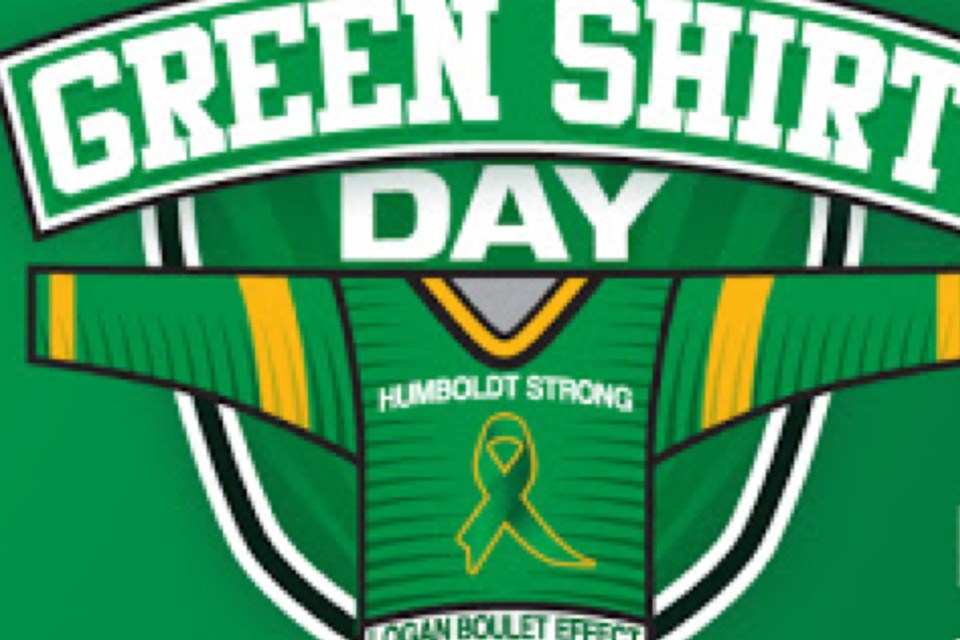OLDS — About 21 years ago, Kathy Rowland’s sister donated a kidney to her and Rowland has never forgotten what an incredible change that made in her life.
Rowland had lupus. It’s a long-term disease in which the body's immune system becomes hyperactive and attacks normal, healthy tissue.
Its symptoms can include inflammation, swelling, and damage to the joints, skin, kidneys, blood, heart, and lungs.
In Rowland’s case, she said, “lupus took my kidneys.”
But since that operation, her new kidneys have been good.
“Everything has been awesome. I haven’t had one case of rejection. Everything’s been good. All my numbers are still good,” she said during an interview, adding she just underwent an assessment a few weeks ago.
The donation has resulted in a special bond between Rowland and her sister. She calls her sister her hero.
It’s also made Rowland keenly aware of the importance of April 7; Green Shirt Day, a day set aside each year to encourage Canadians to sign up to donate their organs.
Green Shirt Day was established in honour of Logan Boulet, one of 16 junior hockey players and staff killed in a crash between a bus and a semitrailer that occurred April 6, 2018 about 250 kilometres northwest of Saskatoon.
Graysen Cameron of Olds was among 13 people severely injured in that crash.
"It’s just so important to do these things because there are a lot of people out there who need donated organs – kidneys, livers, lungs,” Rowland said.
“And they’ve made it so much simpler now that you can donate a kidney and it can help somebody across the country. Whereas before, I had to have a match – preferably a living donor.”
Rowland said the kidney transplant she received literally changed her life.
“I started on hemodialysis, which was three days a week, driving to Calgary then. And pretty much three full days, by the time you drove there, had your dialysis and came home,” she said.
Now there’s a dialysis unit in the Olds Hospital and Care Centre.
Rowland is also impressed with how far kidney transplants have come over the years.
“When we had ours done, it was a very invasive surgery for her," she said. "And now they do it laparoscopically (where surgeons conduct the procedure through one or several small incisions in your abdomen using surgical instruments and a long, thin tube with a camera at the end called a laparoscope).
“So it's way easier on the donor, whereas before, it was way harder on the donor than it was on the recipient."



